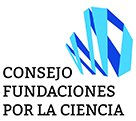Health care in crisis situations
Today, almost 80 million people need humanitarian aid as a result of natural disasters and armed conflict. It is calculated that approximately four million people have lost their lives in the past two decades because of these causes, and over 1,000 million people have been affected in different ways. The mobility and intervention of health…
2017










